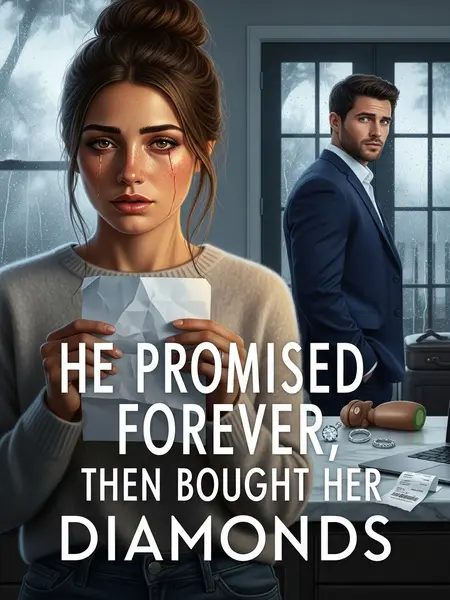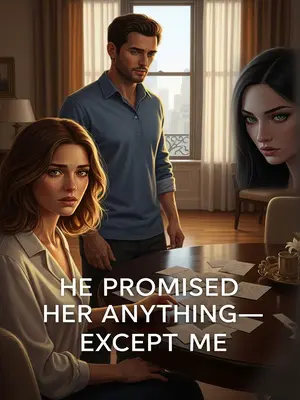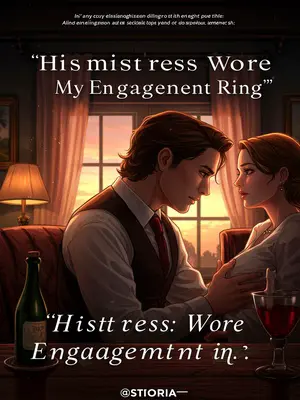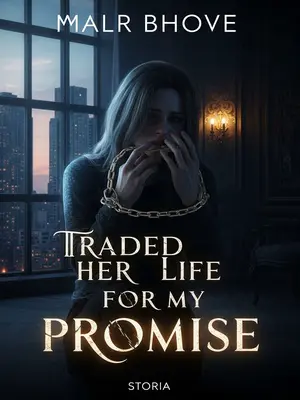Chapter 6: The Nuclear Option
He turned and left. I called my old college roommate, Melissa Quinn.
My hands shook as I dialed her number. The phone rang twice before she picked up, her voice warm and steady. I told her everything, the words tumbling out in a rush. My hands wouldn’t stop shaking, my eyes stinging.
Seven years had passed—Melissa was now a partner at the biggest law firm in Maple Heights. She was nothing like the awkward girl I’d known in school: now she wore a sharp bob and a power suit, radiating confidence, but still looked elegant as she lifted her coffee cup.
We met at a downtown café, sunlight streaming through the windows. Melissa looked every bit the part—sharp, composed, with a smile that could slice through steel. I felt small beside her, but also grateful.
I stared at her, lost in thought. If I hadn’t turned down that law firm offer, maybe I’d be shining just as brightly now.
She caught my gaze, offering a sympathetic smile. “It’s never too late to start over, Harper.” I wanted to believe her, but hope felt like a foreign language.
Melissa dropped a sugar cube into her Americano.
She stirred it slowly, the spoon clinking against the mug. The aroma of coffee filled the air, warm and comforting.
“Weekends spent shuttling kids to activities, never missing a school event—judges love that ‘model father’ image.”
She pulled up a news story from earlier. It showed Carter flying a kite with Daisy on campus. The headline read: “State U’s Youngest Professor Carter Whitman: The Perfect Balance of Research and Parenting.”
The picture was perfect—Carter smiling, Daisy’s hair blowing in the wind. I felt a pang of jealousy, knowing how carefully he curated that image.
I slid my phone across the table—texts, the diamond ring receipt, the photos I’d just taken of them together…
Melissa’s nail traced the screen.
She examined each piece carefully, her brow furrowing. “This isn’t nothing, but it’s not enough.”
“Physical closeness isn’t proof of cheating. The ring receipt isn’t direct evidence either—there’s no way he’ll be forced to leave with nothing.”
Her voice was gentle but firm. I wanted to argue, but I knew she was right.
She pulled out her iPad and opened a database of custody cases.
The screen was filled with case numbers, legal jargon, statistics. It was overwhelming, but Melissa walked me through it, patient as ever.
“In the past three years, 91% of full-time stay-at-home moms in this city lost custody. The other 9% who won had property or steady income from their own families.”
Her words hit me like a slap. I hadn’t realized—until now—how little my sacrifices mattered.
“You know what stay-at-home moms are called in court? Unemployed. Even if you make ten grand a month from writing, if it’s not on your tax returns, it doesn’t count as a job.”
She finally pushed over a sticky note.
Her handwriting was neat, precise. “Start documenting everything,” she said. “You’ll need every scrap of evidence you can get.” I stared at her neat script, feeling a wave of exhaustion. Did I even have the energy for this?
“If you really want to get divorced, start saving every grocery receipt to prove your daily parenting contributions. Getting custody of Daisy is going to be very, very hard.”
The words echoed in my mind, heavy and final. I felt the weight of every decision I’d ever made, pressing down on me.
I gripped the documents in my bag.
My fingers dug into the leather, knuckles white. I wasn’t sure if I was ready for this fight, but I knew I couldn’t back down now.
“If I had evidence of Carter committing academic fraud, could I use that to make him cut a deal on custody?”
Melissa hesitated, her eyes searching mine. “That’s a nuclear option, Harper. Once you go there, there’s no turning back.”
After talking with Melissa, her last words echoed in my mind for a long time:
“Are you really ready to burn it all down?”
Her question lingered long after I left the café, following me through the city streets, all the way home. I didn’t have an answer yet. But I knew I was running out of time to find one. Maybe I’d never really know, not until I took that final step.
Either way, the next move would change everything.













